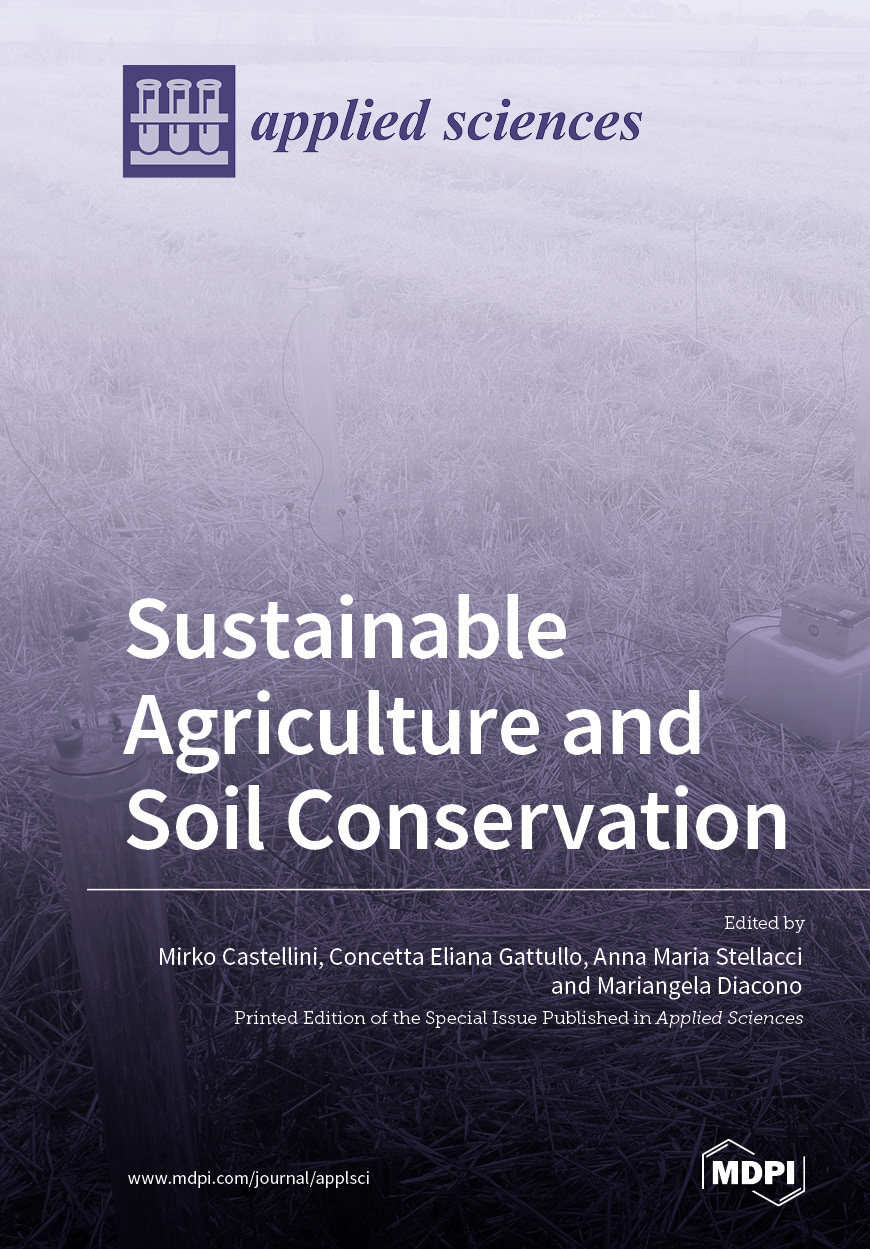Sustainable Agriculture and Soil Conservation

Download Url(s)
https://mdpi.com/books/pdfview/book/4690Contributor(s)
Gattullo, Concetta Eliana (editor)
Stellacci, Anna Maria (editor)
Castellini, Mirko (editor)
Diacono, Mariangela (editor)
Language
EnglishAbstract
Soil degradation is one of the most topical environmental threats. A number of processes causing soil degradation, specifically erosion, compaction, salinization, pollution, and loss of both organic matter and soil biodiversity, are also strictly connected to agricultural activity and its intensification. The development and adoption of sustainable agronomic practices able to preserve and enhance the physical, chemical, and biological properties of soils and improve agroecosystem functions is a challenge for both scientists and farmers. The Special Issue entitled “Sustainable Agriculture and Soil Conservation” collects 12 original contributions addressing the state of the art of sustainable agriculture and soil conservation. The papers cover a wide range of topics, including organic agriculture, soil amendment and soil organic carbon (SOC) management, the impact of SOC on soil water repellency, the effects of soil tillage on the quantity of SOC associated with several fractions of soil particles and depth, and SOC prediction, using visible and near-infrared spectra and multivariate modeling. Moreover, the effects of some soil contaminants (e.g., crude oil, tungsten, copper, and polycyclic aromatic hydrocarbons) are discussed or reviewed in light of the recent literature. The collection of the manuscripts presented in this Special Issue provides a relevant knowledge contribution for improving our understanding on sustainable agriculture and soil conservation, thus stimulating new views on this main topic.
Keywords
Tungsten; corn uptake; soil characteristics; Freundlich model; Biolog®; community-level physiological profiling (CLPP); functional diversity indices; metabolic bacterial diversity; olive; soil fertility; soil quality; maize; stomata; soil; phenanthrene; remediation; qualitative multi-attribute model; total energy output; agro-ecological service crops; ex-post sustainability; organic systems; amendment; biochar; brewers’ spent grain; hop; image analysis; plant growth; Beerkan method; infiltration; forest restoration; soil water repellency; tillage; fertilization; soil depth; organic carbon; clay minerals; diffuse reflectance; infrared Fourier transform spectroscopy; bioremediation; composting; PAHs; organic co-substrates; mulching; flattening; irrigation; photosynthesis; transpiration; water stress integral; fruit growth; water use efficiency; productivity; soil organic matter; near-infrared spectroscopy; spatial heterogeneity; multivariate adaptive regression splines; partial least squares regression; anaerobic digestion residues; soil amendment; soil fertilization; soil organic C; soil porosity; soil microbial community; copper; rhizosphere; smart agriculture; microbes; vineyard; organic agriculture; soil organic carbon; soil management; soil contamination; soil remediation; sustainable fruit growing; water conservation practices; multivariate statistical models for SOC predictionWebshop link
https://mdpi.com/books/pdfview ...ISBN
9783036524771, 9783036524764Publisher website
www.mdpi.com/booksPublication date and place
Basel, Switzerland, 2021Classification
Research and information: general

